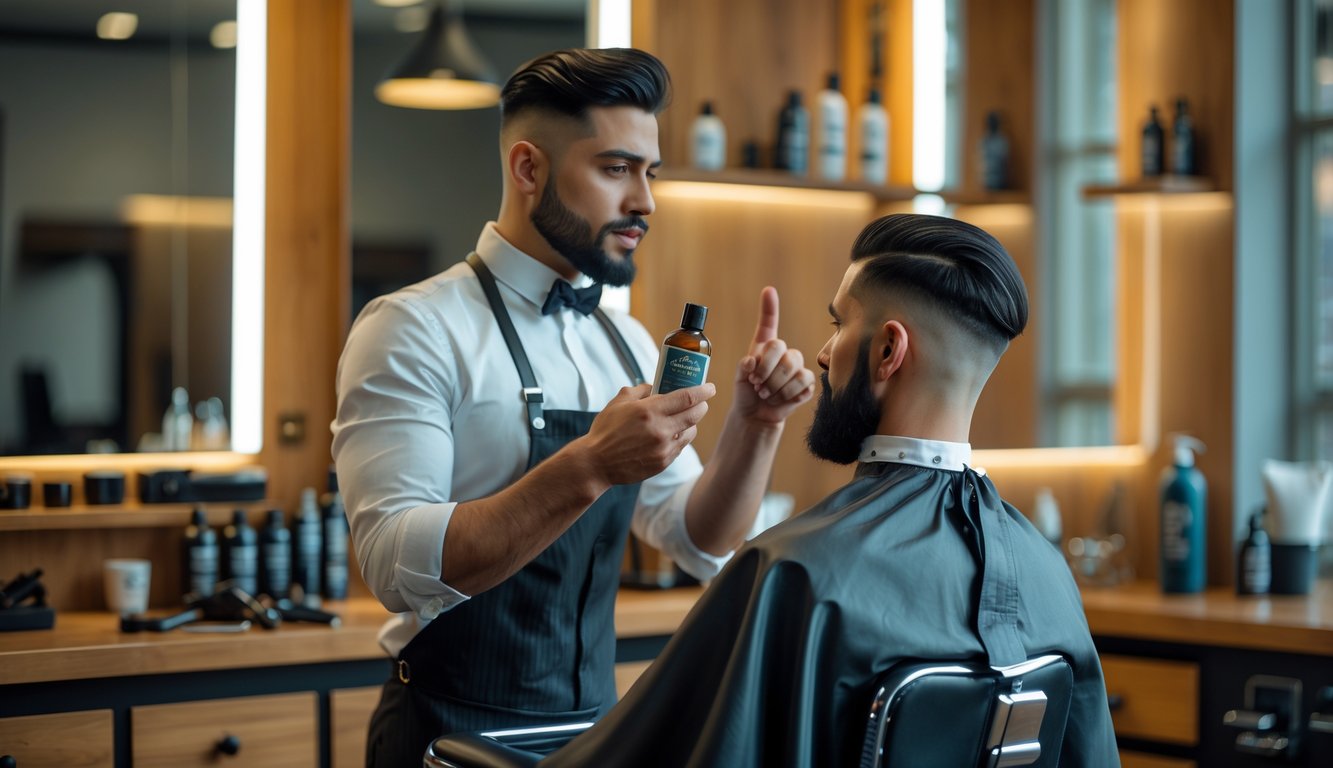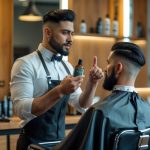
Impact of Shampoo Scams on Men’s Confidence
Trying to sort this mess out, I keep landing on two things: guys keep buying into wild promises, and it actually screws with their heads way more than anyone admits. Every “revolutionary” shampoo brings new hype, but what really sticks is the way those empty bottles pile up and make dudes feel worse about themselves.
Psychological Effects
One of my clients—swore by this $30 “advanced thickening” shampoo with caffeine and peptides—kept buying it, hoping his hairline would magically stop receding. Nothing changed. Now he’s got a graveyard of bottles and still hates his bathroom mirror. Barbers everywhere say the same: guys come in less confident, fidgety, over-explaining their routines like it’s a confession.
JAAD (2022) said 68% of men feel worse about themselves because of hair loss. Add in the sting from wasting cash on empty promises—some guys just give up. There’s this weird hope that never dies, fueled by ads and Instagram “results” nobody can actually see.
Social Consequences
Barbershop talk gets weird, honestly. One guy skipped every pool party last summer because he thought his hair looked “weaker” after switching to a hyped thickening shampoo. Nobody else noticed, but he couldn’t shake it. Men overthink this stuff—ditch dates, photos, even friends because a shampoo bottle didn’t deliver or made their scalp a mess.
I asked around. At least five regulars said they felt “less manly” after trying those “man’s formula” scams—the ones that smell “rugged” but leave you dry and itchy. Some even guard their bottles on trips like it’s a security blanket. It’s not logical. The marketing noise and fake reviews get in your head, mess with your mornings, and honestly, it’s just shampoo.
Choosing Safe and Effective Men’s Shampoo
With all these $30 bottles promising “hair revival elixir” (what even is that?), you’d think the basics would be sorted. Nope. It’s just a minefield of bad info and sketchy labels. One brand’s “deep cleansing” is another guy’s dry scalp nightmare. Every week, someone emails me about SLS vs. sulfate-free like it’s a political debate.
Trusted Brands and Reviews
TV commercials want you to believe Brand X will get you glossy hair and a date. My stylist friend? He only trusts the EWG Skin Deep® database (seriously, check it out) and says he’s one bad review away from tossing every bottle he owns. And those five-star Amazon reviews with two words? Please. Ingredient lists matter way more than influencer hype, and barbers know it.
Lab-tested stuff like American Crew or Nizoral—still the go-to if you’ve got an itchy scalp or dandruff. Nizoral’s 1% ketoconazole is FDA-approved (my dermatologist checked after I got a weird rash). Sajid, my barber, always rants about “fragrance” on labels—could be anything from flowers to chemical sludge. Ingredient charts help, but who actually hands those out? Just remember: popularity doesn’t mean safety, and “salon quality” is usually just a sticker.
Barber-Approved Shampoo Alternatives
Alright, so let’s get real: barbers keep warning me off bar soap and those 2-in-1 “miracles,” but then you walk into a shop and, surprise, they’re selling them anyway. I don’t know, maybe it’s just for the folks who forgot their shampoo. Some random on the internet swore by switching to a sulfate-free bar with like three ingredients, claimed it stopped his flakes. I thought that was total nonsense, but, weirdly, it actually helped when I tried it. And don’t even get me started on water-only washing—those “no-poo” people act like it’s a cult, but I read a Reddit thread where a guy just smelled like a wet dog for a month. Not exactly selling me.
Had this one barber in Toronto ramble about DIY mixes—apple cider vinegar, tea tree oil, Dr. Bronner’s, whatever. He swears it’s better for oily scalps, but you can’t just dump vinegar on your head and expect magic. Dilute, or you’ll regret it. There’s also this whole “co-washing” thing—conditioner-only washing, apparently. But who’s actually reading the ingredient lists? Everyone’s chasing that one magical fix, but my cousin just grabs Head & Shoulders because he’s stubborn and cheap, and honestly, he’s fine. Sometimes “shampoo alternatives” just means “stop being so precious about it.”
Staying Informed to Avoid Future Scams
Okay, this part drives me up the wall—why does every shampoo label look like a failed chemistry quiz? I stare at these bottles, and every season it’s the same formula with a new sticker. Marketing people must think we’re idiots. My stylist shrugs at all those “barber recommended” claims. I’m just trying to keep my scalp (and bank account) intact, but sorting through this stuff feels a lot like dodging phishing emails—except the scammers have better fonts.
Ongoing Education for Hair Health
Dermatologist tells me sulfate-free is the way to go, but the salon’s always pushing $40 bottles instead of just saying, “Hey, skip a wash now and then.” Some TikTok “hair guru” promised biotin shampoo would regrow my hair. My actual barber? He just laughs and mutters, “Don’t waste your money, only prescriptions do anything.” Apparently, the FTC’s been tracking hair scams—yesterday it was pyramid schemes, now it’s “AI-powered” miracle goop.
If I need Google Translate for an ingredient, I probably don’t want it on my scalp. But I still grab drugstore brands half the time, because who’s got energy to research every bottle? The barbers who’ve been cutting hair for decades all say the same thing: don’t overthink it—wash when you need to, check your scalp, don’t fall for the hype. One of them even said, “Those thickening shampoos? Marketing. Just use a gentle cleanser and a decent brush.”
Ever seen a shampoo with a warning like “may cause breakage if misused”? What, am I drinking it by mistake? The warnings get weirder every year. I can’t make sense of the tables and charts—they all start to blur—but if the bottle suddenly smells different or costs double, that’s a red flag. Marketing stunt, guaranteed.



